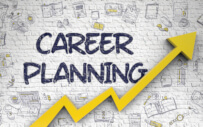
Group coaching prepares students for the world of work they’ll be joining. It also enables colleges to deliver career services more efficiently by allowing a smaller number of career staff to provide rich learning experiences at scale.

Far from being at odds, career coaching and career advising are complementary. Each offers distinctive advantages to help students navigate their career trajectories.

Supporting arts students isn’t easy, but career services professionals can help students find industry-related information, identify mentors, highlight the transferable skills their crafts have given them, and expand their view of themselves.

The role of today’s primary role academic adviser is robust and multifaceted. Advisers must continually provide supportive outreach and engagement to address student interests, develop academic plans, and identify career paths from the time students first enroll throughout their college experience, and oftentimes, well past graduation.

As a career coach, I meet with both domestic and international students who are hoping to build their connections in a variety of industries. Many of our newer graduate programs in the Katz School of Science and Health can be completed in as little as 12 months, so there is a relatively short runway for these students to develop and cultivate their industry connections.

There is a seemingly endless supply of tools and tips for helping the undeclared student figure out what they want to do with their life. This process is difficult for students, challenging them to develop self-awareness alongside visions for the future.

How can your career center help students to prepare for their mock interviews and set up the mock interviews to maximize the experience?

The “wandering map,” a variation on the mind map, encourages students to explore their lives on paper.

The coaching movement addresses the student as an equal partner, empowering them to close the gap between where they are and where they want to be.

Coaching is the primary focus regarding the career development of students and the professional development among career services staff.

Appreciative inquiry is a positive, solution-focused approach to problem solving and is sometimes labeled appreciative coaching, appreciative advising, and appreciative living. These labels tend to reflect the population served: Appreciative inquiry focuses primarily on organizations, while the other terms apply more to work with individuals.

What advice would you offer to a student who wants to include religious information on his or her resume?

Many colleges are placing a renewed emphasis on recruiting rural students. Are career centers prepared to help them when they get there?

There are questions that career services professionals can suggest their students ask recruiters to assess an organizations’ DEI priority and commitment.

Students may ask specific questions to assess your organization’s commitment to diversity, equity, and inclusion. Be prepared to answer them.

By intentionally blending appreciative advising and brain-based career development, career services professionals can better serve students.

Career services professionals have been wrestling with helping students pursue work that provides meaning and allows them to make an impact. Career services professionals can benefit from a calling-centered approach to career coaching.